- Home
- Jim Eldridge
Murder at the British Museum Page 10
Murder at the British Museum Read online
Page 10
‘No,’ said Abigail. ‘The Children of Avalon are only interested in promoting the later medieval Malory version of Arthur: knights in armour, courtly love, quests for the Grail, that sort of thing. If you remember the two young idiots we talked to disdained the earlier references, anything to do with the reality of Ambrosius is anathema to them.’
‘So, who would want to do this? And why?’ Then he stiffened as a realisation hit him. ‘And how?’
He hurried to where Ashford was still supervising the checking of the books.
‘Mr Ashford, was there any sign of a break-in during the night?’
‘No, Mr Wilson. I sent the stewards to check every window, every door, for any sign of forced entry. And I spoke to the two nightwatchmen who were on duty. They reported nothing.’
‘Didn’t they notice the damage while they were on their rounds?’
‘They don’t do rounds, as such. They guard the two main entrances. The museum is so vast that it can be difficult to find your way around it in the dark, even with an oil lamp to help. It was decided that if there was trouble it would come from someone trying to break in through one of the entrances, so that’s where they’re stationed. There’s also a nightwatchman who patrols the outside of the building.’
‘And he saw nothing?’
‘Nothing.’
‘And there were no signs of disturbance either inside or out?’
‘None.’ He gestured at the writing on the wall. ‘Have you finished? I’d like to get the screens up.’
‘Yes, of course,’ said Daniel. ‘Thank you, Mr Ashford, and may I congratulate you on the way you’ve handled this with great speed and efficiency.’
‘Just doing my job, sir,’ said Ashford.
Daniel and Abigail moved to the undamaged part of the exhibition to allow the cleaners and ushers to set about their work under Ashford’s direction.
‘Well?’ asked Abigail.
‘No sign of forced entry. Which leads us to only one conclusion.’
‘The spirit of Emrys working his magic,’ said Abigail.
When Daniel shot her an inquisitive look she said swiftly, ‘That was a joke.’
‘Sorry,’ he said. ‘With no sign of forced entry …’
‘The person who did it must have already been in the museum,’ finished Abigail.
‘Yes,’ said Daniel. ‘Hiding. And they made their escape when the doors were opened, just slipped out.’
‘They were taking a chance,’ said Abigail. ‘They weren’t to know the nightwatchmen didn’t patrol inside the museum.’
‘Unless they did,’ said Daniel.
‘You’re thinking the culprit is someone who knows how the system works at the museum?’
‘It makes sense,’ continued Daniel. ‘They’d know the best place to hide when the stewards do their last round to make sure everyone has left the building. They’d know the nightwatchmen wouldn’t be patrolling.’
‘Someone who works here?’
‘Or who worked here,’ said Daniel. ‘Someone with a grudge against the museum.’
‘Someone who was dismissed?’ asked Abigail.
‘It’s worth looking into. When Sir Jasper arrives, we’ll ask him if he knows of any disgruntled ex-employees.’ He frowned, thoughtful. ‘But why write “Who killed Ambrosius”? Why fixate on that?’
‘Ambrosius is the key,’ said Abigail. ‘He’s the subject of Professor Pickering’s book, and Pickering was killed here.’ She gestured at where the staff were putting the display of Pickering’s books back together. ‘Look at the way the books were hurled around. Nothing else in the exhibition was touched except the books, and the graffiti on the wall.’
‘Alright, I can see where this is going.’ Daniel sighed. ‘You’ve been telling me I should have examined the exhibition properly, and I will. And I will read the professor’s book and see if there’s anything in there that arouses such anger. But, right now, tell me the short version. Who was Ambrosius, and how does he relate to the person of King Arthur?’
‘The main link is the Battle of Badon, which is believed to have taken place in about 500, between the Britons and the invading Saxons,’ said Abigail. ‘Some accounts talk of the Britons being led by Ambrosius Aurelianus, some by Arthur, which is why they are believed to be one and the same.
‘There are five main sources for the tales of Ambrosius and his connection with King Arthur: Gildas, a monk who was writing in the sixth century; Bede, a seventh-century monk based in Jarrow; Nennius, a ninth-century Welsh monk; and two who wrote in the twelfth century: William of Malmesbury and Geoffrey of Monmouth. Of these, most scholars discount Geoffrey because his text is less about historical fact than myths and legends. It was Geoffrey who added Merlin to the Arthurian cycles – or Emrys, as he initially called him, then changed his name to Merlin.’
‘King Arthur’s magician,’ said Daniel.
‘Yes and no,’ said Abigail. ‘Geoffrey says that Merlin was Ambrosius’s magician first when Ambrosius was King of the Britons, then when Ambrosius died, Merlin gave service to Uther Pendragon, and then to Uther’s son, Arthur.’
‘How did Ambrosius die?’
‘According to Geoffrey, he was poisoned by his enemies. Interestingly, William of Malmesbury also calls Ambrosius the King of the Britons, and names Arthur as Ambrosius’s general, when they defeated the Saxons at the Battle of Badon. Nennius also describes Ambrosius as “King among all the Kings of the British nation”.
‘Gildas and Bede describe Ambrosius as the leader of the Britons, but not a king, though Gildas says he “wore the purple”, which means he was of royal birth.’
‘So, there’s some agreement there.’
‘Again, yes and no,’ said Abigail. ‘All these early historians copied one another; so Bede would have taken his information from Gildas, and Nennius from Bede, and so on.’
‘So this graffiti saying “Who killed Ambrosius”?’
‘I don’t know,’ admitted Abigail. ‘The only real mention of his death is Geoffrey saying he was poisoned, but as I said, Geoffrey’s account is considered suspect. More fiction than history.
‘The things that link Ambrosius and Arthur – even the later Arthur of Geoffrey and Malory – are that Ambrosius was the fearless leader of a cavalry troop.’
‘Knights on horseback,’ said Daniel.
‘Exactly. And the fact that Badon is generally assumed to be a hill outside Bath. The “D” in Badon is the linguistic giveaway; it was how the “TH” sound was written at that time.’
‘So that puts Ambrosius and his mounted cavalry around Bath.’
‘Which later became the area where Arthur was active, around Glastonbury and up to and across the Welsh border. Geoffrey of Monmouth locates Camelot at Caerleon just across the border in Wales, for example. As does Chrétien in his poem “Lancelot, the Knight of the Cart”.’
‘I need to read the book,’ said Daniel.
‘You do. And to examine the exhibition properly.’
They were interrupted by the sound of raised voices from the main entrance, and a bellowed, ‘Who’s in charge here?!’
‘I think Superintendent Armstrong has just arrived,’ said Daniel.
CHAPTER SEVENTEEN
Armstrong made his way up from the steps from the main reception and scowled when he saw Daniel and Abigail.
‘You’re still here,’ he growled disapprovingly.
‘We are indeed, Superintendent,’ said Daniel. ‘I assume you heard about last night. No one turned up.’
‘A hoax,’ grunted Armstrong. ‘I suspected as much.’ He turned to Ashford and demanded, ‘Where’s Sir Jasper?’
‘He’s …’ began Ashford. Then, as a familiar movement at the entrance caught his attention, he said, ‘He’s just arrived.’
Sir Jasper hurried towards them, out of breath. ‘Superintendent,’ he said. ‘Thank you for coming. I apologise for the fact I wasn’t here to greet you, but I’ve only just received the message about the at
tack.’ He turned to Ashford and asked, ‘Was there much damage?’
‘Red paint used to write on the wall,’ replied Ashford. ‘I’ve had it concealed behind screens so that we could open the exhibition to the public, but also to allow room for the police to examine the evidence.’
‘Well done, Ashford,’ said Sir Jasper.
‘Yes, good, clear thinking,’ put in Armstrong.
‘It was Miss Fenton who suggested using the screens,’ said Ashford.
Sir Jasper turned to Abigail and smiled. ‘Thank you, Miss Fenton.’
Armstrong scowled. ‘What about the rest of the damage?’ he demanded. ‘The constable reported mayhem here.’
‘The books from the display had been thrown about and were on the floor,’ said Ashford. ‘I’ve had the display put back together, again so we could open the exhibition to the public.’
‘Good man, Ashford,’ said Sir Jasper. He indicated the screens. ‘Shall we examine the damage?’
‘Miss Fenton and I have already examined the paintwork,’ said Daniel. ‘So, as there is limited space there, we’ll let you gentlemen do that, and then we can discuss our findings.’
‘You are not part of the official police investigation,’ scowled Armstrong. ‘I will not be discussing any conclusions I reach with you.’
‘You don’t think that’s a bit narrow-minded?’ asked Daniel. He looked at Sir Jasper. ‘Surely, on a case like this, the more minds and thoughts we have on it the better.’
Sir Jasper nodded. ‘I have to agree.’
Armstrong looked at Sir Jasper, then at Daniel, then back at Sir Jasper again, and both Daniel and Abigail could see he was doing his best to control an outburst of temper. What he wanted to do was order Daniel and Abigail out in the most brutal fashion. Instead, he swallowed hard and forced out, ‘That’s your prerogative, Sir Jasper. This is your museum.’
‘Then we’ll wait for you here while you examine the paint, and perhaps afterwards we could all repair to your office, Sir Jasper,’ said Daniel.
‘Very good,’ said Sir Jasper.
He headed for the screens, and the superintendent threw a last scowl at Daniel before following the museum director.
‘He really doesn’t like you,’ said Abigail.
‘No, he doesn’t,’ agreed Daniel.
‘Why?’
Daniel shrugged. ‘It’s a long and old story.’
‘We have time,’ said Abigail.
‘Possibly, but this is not the place for it. They won’t be behind those screens for very long, and I’d rather Armstrong didn’t come back and hear me talking about it.’
As Daniel had predicted, the two men were behind the screens for just a few minutes before they reappeared and headed for the stairs that led up to Sir Jasper’s office. Daniel and Abigail followed. Sir Jasper’s first words once they had sat down was to ask about the previous night and the ransom.
‘A non-event, so Inspector Feather tells me,’ grunted Armstrong. ‘I suspect it was a hoax. Someone making mischief.’ Then he turned to look accusingly at Sir Jasper, and Daniel and Abigail. ‘But on a serious note, I understand from the constable who brought me the message about this vandalism that this is the second such attack in just a few days. That before there was serious damage, a glass case being smashed.’
‘That is correct, Superintendent.’ Sir Jasper nodded.
‘But the constable told me the museum decided not to press charges, and had decided not to involve the police further,’ added Armstrong angrily.
‘That is also correct,’ said Sir Jasper. ‘I asked Mr Wilson and Miss Fenton to deal with the situation to avoid publicity that could adversely affect the museum and the exhibition.’
‘With respect, Sir Jasper,’ grunted Armstrong in a tone of voice that showed he had very little respect, ‘that was completely the wrong decision. The two attacks are obviously connected. If we’d been allowed to investigate the first one, instead of it being left to amateurs, we could have prevented this one.’
‘Miss Fenton and I must disagree with you, Superintendent,’ said Daniel calmly. ‘The first attack was by some people calling themselves the Children of Avalon, who are devotees of the King Arthur of …’ He looked at Abigail.
‘Of Geoffrey of Monmouth and Sir Thomas Malory,’ said Abigail.
‘As opposed to this attack, which – as you will have seen – refers to Ambrosius.’
Again, he turned to Abigail, who added, ‘Ambrosius Aurelianus was a Romano-Briton war leader of the fifth and sixth centuries, far removed from Malory’s and Geoffrey’s Arthur. The Children of Avalon, who launched their attack against the exhibition, were protesting at its linking their romantic Arthur with the historical Ambrosius. They deny such a connection. The two attacks are not connected.’
‘Nonsense!’ snapped Armstrong. ‘How can you say that? The evidence is there!’
‘The evidence is there to show that the reasons for the attacks were not the same,’ stated Abigail firmly.
‘But they attacked the same exhibition!’ insisted Armstrong. ‘It doesn’t matter whether this is about Arthur or this … this …’
‘Ambrosius,’ said Daniel.
‘Him.’ Armstrong nodded. ‘They’re the same.’
‘No, Superintendent, they’re not,’ said Abigail. ‘There is a parallel here with religion. I have spent a lot of time in the Middle East and it is assumed that all Muslims follow the same religion. They do not. There are different branches, and the Shi’a and Sunni factions are resolutely opposed to one another and would never work together. As is the case with the Catholic and Protestant forms of the Christian religion. To a non-Christian they may appear the same, but to a Protestant or a Catholic who are fundamentally opposed to one another, again, they would never work together. It is the same with those Arthurian scholars who accord Ambrosius a place in his history, and those who subscribe to the romantic later visions, where Ambrosius has no place.’
Armstrong stared at her, looking in a state of bewilderment.
‘Miss Fenton can explain it further to you, if you wish, Superintendent,’ said Daniel. ‘But if you read the texts at the exhibition, you’ll see the value of her argument.’
Armstrong scowled, then spat out, ‘I don’t have time for this mumbo-jumbo and hocus-pocus. Two crimes have been committed here. Regardless of what this woman says, I would be failing in my duty, Sir Jasper, if I did not proceed with my own investigation, using proper policemen.’
‘Of course.’ Sir Jasper nodded.
Armstrong stood up. ‘I will be sending Inspector Feather along to conduct his own investigation into both these attacks, as well as him continuing to investigate the murder of Professor Pickering. I wish you good day.’
With that, the Superintendent left.
Sir Jasper turned to Abigail and said, ‘I, too, accept your very plausible argument, Miss Fenton, but it is important we keep Scotland Yard on our side.’
‘Of course, Sir Jasper. I understand,’ said Abigail.
‘Have you yourselves reached any conclusions about today’s attack?’ asked Sir Jasper.
‘That there was no sign of any forced entry, nor any reports of intruders from the nightwatchmen or the patrol outside the building, suggest to us the person who did it may have been hiding inside the museum,’ said Daniel.
‘Inside?’
Daniel nodded. ‘The fact that the paint had dried suggests it was done in the early hours of the morning, possibly between midnight and two. We think the person hid inside the museum, then left when the doors were opened. If we are right, that would suggest someone with an intimate knowledge of the layout of the museum, and the routines, such as the fact that the nightwatchmen stay at their posts by the entrances rather than make internal patrols.’
‘You are suggesting an employee?’ said Sir Jasper.
‘Or possibly a former employee. Someone who might have a grudge against the museum. Or, if this was connected with the murder of Professor Pickering, which
is suggested by the fact that the only real damage were the copies of his books being thrown about, someone who might have a grudge against the professor. But again, this attack indicates it was by someone with an intimate knowledge of the museum and how it works.’
Sir Jasper looked unhappy. ‘It is awful to think that any of our employees, or former employees, would have such feelings. We’ve always thought of ourselves as one big happy family, from the curators to the cleaners, the stewards and the cloakroom attendants, everyone has always worked so well together. Everyone here loves what we are doing at the museum, and they are proud of what we do.’
‘That may be, Sir Jasper, but there’s always one person in any organisation who feels slighted for some reason, imagined or otherwise. Is it possible to let us have a list of people who’ve left the museum’s employ recently, people who may feel they have a grudge against the museum? Was there anyone who left after an argument with Professor Pickering, for example?’
‘I’ll talk to Ashford about it,’ said Sir Jasper thoughtfully. ‘If there is any such person, he’ll know, I’m sure.’
‘Would you mind if we talked to Mr Ashford?’ suggested Daniel. ‘We understand that you’re very busy, and we do have an idea of what we’re looking for in this situation.’
‘Not at all, I’m happy for you to do that,’ said Sir Jasper.
CHAPTER EIGHTEEN
As Daniel and Abigail made their way to Ashford’s office, Abigail said in a tone heavy with disapproval, ‘You’ve got a nerve.’
‘What do you mean?’ asked Daniel.
‘Telling Superintendent Armstrong to read the texts at the exhibition. You haven’t even read them yourself! You only said that to annoy him.’
Daniel smiled. ‘True,’ he said. ‘But I promise I will. In fact, once we’ve talked to Mr Ashford, I promise I will take a copy of Professor Pickering’s book and read it thoroughly.’
‘Will you raise the issue of the row with Professor Pickering with Ashford?’

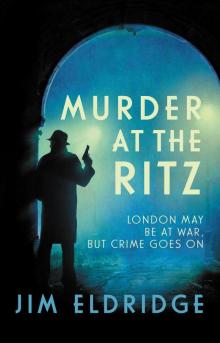 Murder at the Ritz
Murder at the Ritz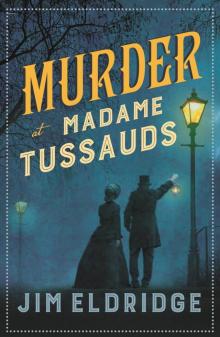 Murder at Madame Tussauds
Murder at Madame Tussauds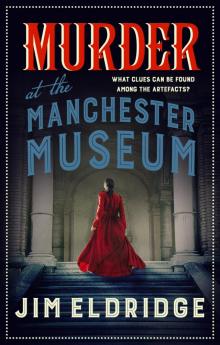 Murder at the Manchester Museum
Murder at the Manchester Museum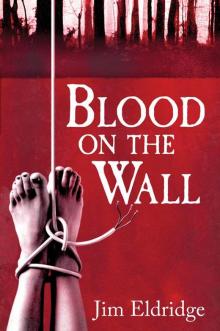 Blood On the Wall
Blood On the Wall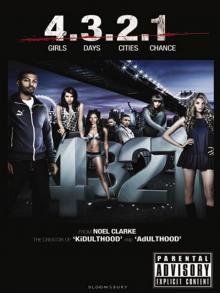 4.3.2.1
4.3.2.1 Jungle Kill (Black Ops)
Jungle Kill (Black Ops)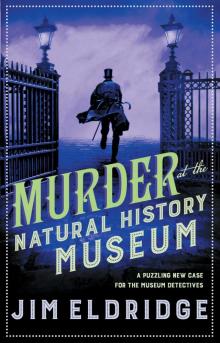 Murder at the Natural History Museum
Murder at the Natural History Museum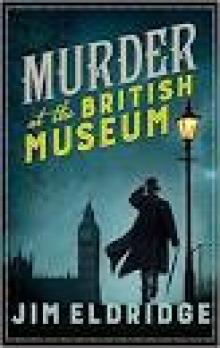 Murder at the British Museum
Murder at the British Museum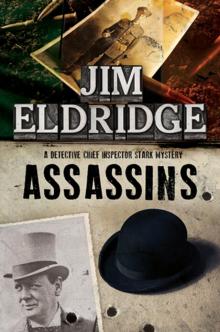 Assassins
Assassins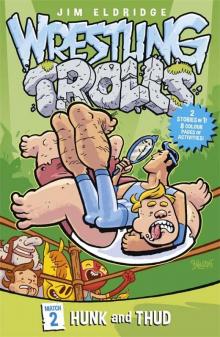 Hunk and Thud
Hunk and Thud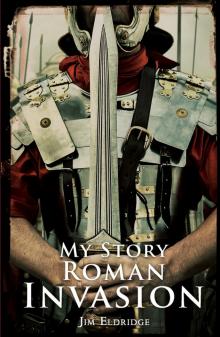 Roman Invasion
Roman Invasion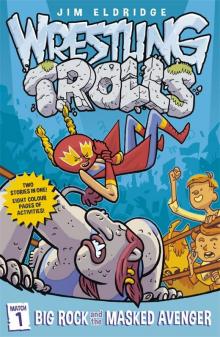 Big Rock and the Masked Avenger
Big Rock and the Masked Avenger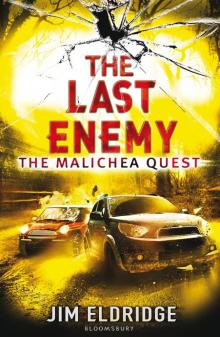 The Last Enemy
The Last Enemy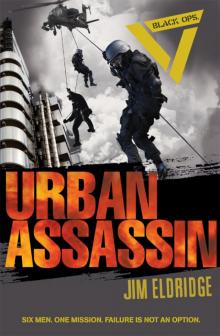 Urban Assassin
Urban Assassin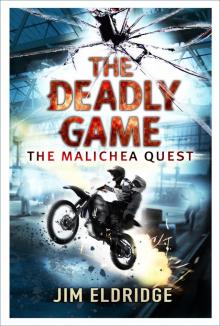 The Deadly Game
The Deadly Game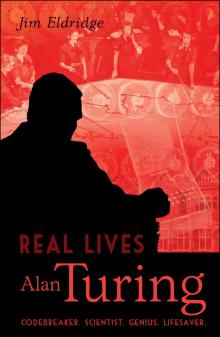 Alan Turing
Alan Turing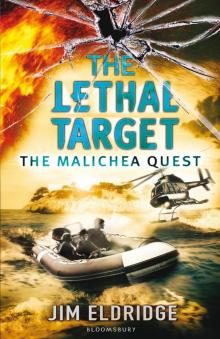 The Lethal Target
The Lethal Target The Giant Rumble
The Giant Rumble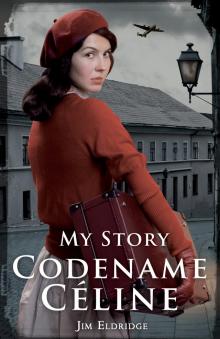 Codename Céline
Codename Céline Death in the Desert
Death in the Desert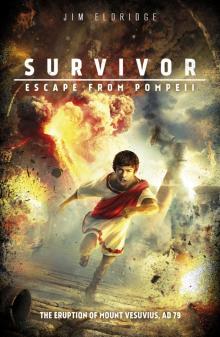 Escape from Pompeii
Escape from Pompeii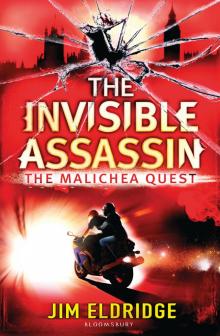 The Invisible Assassin
The Invisible Assassin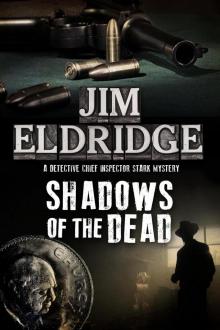 Shadows of the Dead
Shadows of the Dead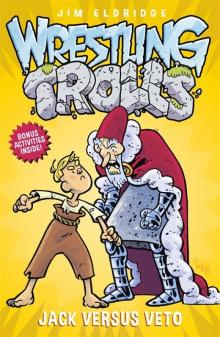 Jack Versus Veto
Jack Versus Veto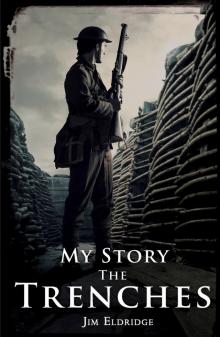 The Trenches
The Trenches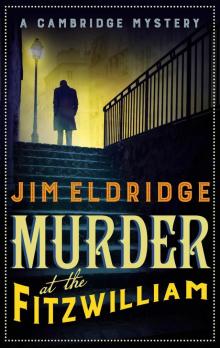 Murder at the Fitzwilliam
Murder at the Fitzwilliam Coming Home
Coming Home